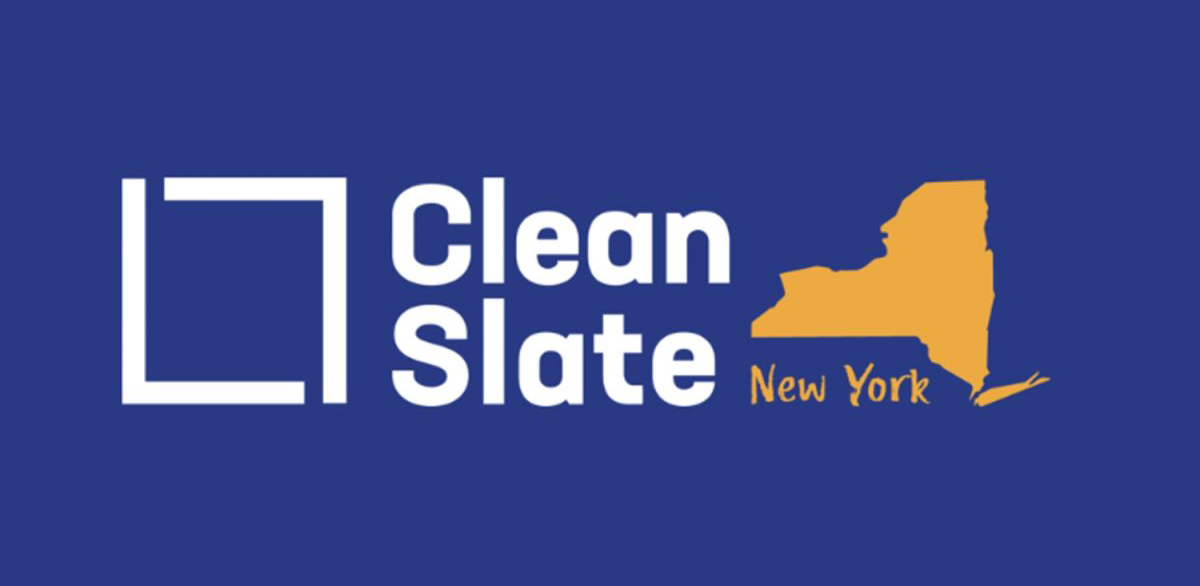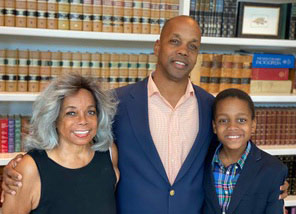Crime
Senator Zellnor Myrie Leads Clean Slate Act to Seal Criminal Records

By Fern Gillespie
Brooklyn Senator Zellnor Myrie wants to give many New Yorkers who have completed their criminal sentences a Clean Slate opportunity for jobs and housing. The Clean Slate Act, sponsored by Myrie in the NY Senate, would automatically seal conviction records for New Yorkers who meet certain conditions and have already completed their criminal sentences.
In a passionate speech before the NY Senate, he spoke out about the necessity of a Clean Slate Act. “There are people with convictions that can’t feed their children. Because they can’t get a job. Anytime I’ve shown up to trauma and crime in my community, I talk to the guys on the block,” said Myrie, whose constituents include Brownsville, Crown Heights, and East Flatbush. “They say ‘Z, I don’t want to do this. I don’t want to be in this life. But I can’t get a job.’ This is a public safety bill. Because it incentivizes good behavior.”
A person is eligible for relief under Clean Slate when they have completed a three-year waiting period for misdemeanor convictions. Or, completed an eight-year waiting period for felony convictions. They must have no pending charges in New York and have completed probation or parole. This does not count time served in prison.
There are exceptions to sealing criminal records in Clean Slate. Sex offenses are not eligible for sealing under the Clean Slate Act. Also, Clean Slate will not limit background checks for law enforcement, prosecutors, the criminal legal system, police, prosecutors, defense counsel, judges, and court officials, gun licenses, Department of Motor Vehicles, private transportation companies like Uber and Lyft, jobs with children, the elderly, and people with disabilities; New York State Education Department, public, private, and religious schools legally permitted or required to run fingerprint-based background checks will have access to sealed records. NYSED will also retain access for specified disciplinary proceedings and background checks in enumerated occupations and licenses it oversees.
“The notion that this is giving free passes is something that I have a hard time accepting because if you offend during the waiting period the clock restarts,” said the Cornell-educated lawyer. “In this bill, if you’re on parole you are ineligible. You cannot benefit.”
The Clean Slate Act is about second chances and has the support of many corporations and business agencies. Supporters include JP Morgan Chase, Verizon, Microsoft, 1199 SEIU, National Grid, and Chambers of Commerce and business councils across New York State.
“The private sector is saying we support this because it’s good for our economy,” he said. “All the studies in jurisdictions where Clean Slate has passed indicate that the re-offense rate is lower than the general population. There is a reason for that. People have economic opportunities.” Already Michigan, Pennsylvania and Utah have passed similar Clean Slate bills. Research shows that record-sealing laws increase both employment and wages among beneficiaries.
A study by the Brennan Center for Justice found current laws on sealing records cost incarcerated people $100,000 in lost lifetime income. The findings showed that criminal justice involvement can function as a poverty trap that prevents people from achieving prosperity, sets up future generations for material deprivation, and undermines communities’ well-being. It states that more than 2.3 million New Yorkers have a criminal record of some type and that three-quarters of this population are Black and Latino New Yorkers.
“We’re not talking in the abstract. These individuals live here now. They are out now. They are in our community now. Completely shut out. Having paid their dues, but, we have said we want you punished in perpetuity,” said Myrie, “We feign outrage at crime. We say this is despicable. Why can’t people get their act together? We shut every single door. They are going to go through the door that they know. It’s the only option we left them.”
“So, if you really care about the public’s safety — this is your bill. If you care about putting New Yorkers back to work– this is your bill. If you are a person of faith and you believe in redemption — this is your bill,” Myrie stressed. “Today we are standing up for all New Yorkers, not just those with conviction records. Because they have families. They have communities that will all benefit once they are able to come back into our society.”
The Clean Slate Act could possibly pass during the legislative session in June.














